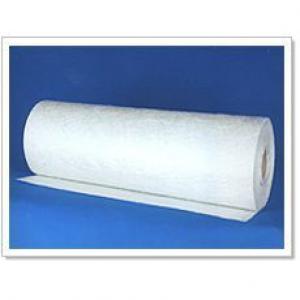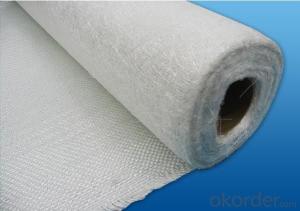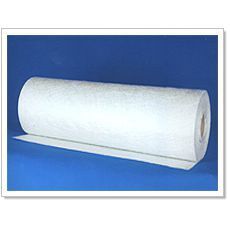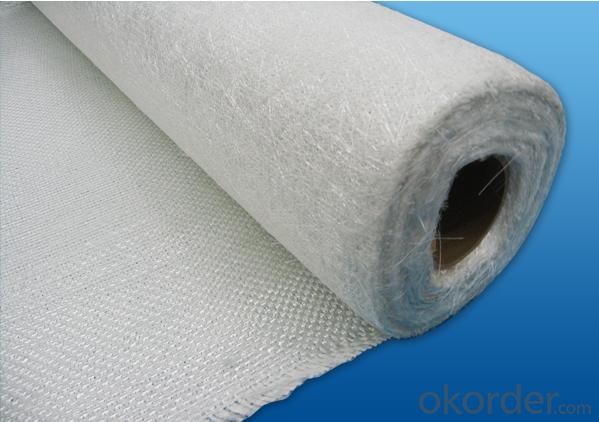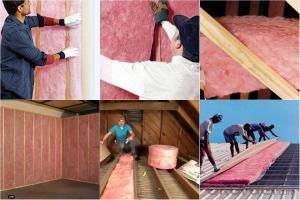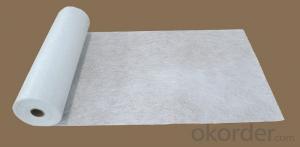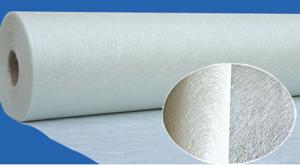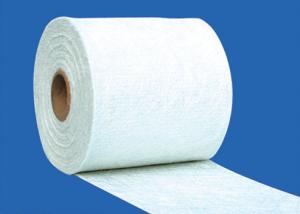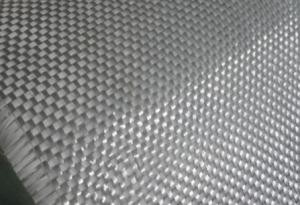Fiberglass Mat Tissue - Fiberglass Woven Roving Compressed Mat 800g 200~2600mm
OKorder Service Pledge
OKorder Financial Service
You Might Also Like
Description & application | |||||||||||||||||||||||||||||||||||||||
◎ This mat is a combination of woven roving and chopped glass fiber. The layer of chopped strand is stitched together with woven roving by polyester thread. It is mainly applied in the processes of molding compressing, pultrusion, RTM, filament winding etc.. | |||||||||||||||||||||||||||||||||||||||
| |||||||||||||||||||||||||||||||||||||||
◎ Increase strength, reduce product weight and better surface finish. | |||||||||||||||||||||||||||||||||||||||
| |||||||||||||||||||||||||||||||||||||||
| |||||||||||||||||||||||||||||||||||||||
| |||||||||||||||||||||||||||||||||||||||
Each roll is wrapped by PE film and then packed into carton. Stacking in bulk or palletized is available; the pallet shall be no higher than 2 layers. | |||||||||||||||||||||||||||||||||||||||
- Q: Is fiberglass mat tissue suitable for outdoor applications?
- Indeed, outdoor applications are well-suited for fiberglass mat tissue. This particular material is constructed from interwoven fiberglass strands, all effectively bound together by a specialized adhesive. Its exceptional resistance to water, weather, and UV radiation renders it particularly well-suited for deployment in outdoor settings. Its adaptability extends to a range of outdoor applications, including roofing, insulation, and construction projects. The waterproof and weatherproof qualities of fiberglass mat tissue guarantee its robustness and longevity even in the face of harsh environmental conditions. Moreover, its lightweight nature and user-friendly handling characteristics make it a highly versatile option for various outdoor endeavors.
- Q: Can fiberglass mat tissue be used for pipe insulation?
- Yes, fiberglass mat tissue can be used for pipe insulation. It provides thermal insulation and can help prevent heat loss or gain in pipes. Additionally, it offers excellent resistance to moisture and corrosion, making it suitable for various pipe insulation applications.
- Q: Is fiberglass mat tissue resistant to moisture?
- Fiberglass mat tissue, indeed, exhibits resistance to moisture. By tightly weaving strands of glass fibers and subsequently bonding them with a resin, this tissue fabricates a barrier that effectively thwarts the infiltration of moisture. Consequently, the moisture-resistant properties of fiberglass mat tissue render it exceptionally suitable for deployment in scenarios where water exposure or high humidity is anticipated. Moreover, this tissue's resistance to moisture aids in averting the proliferation of mold or mildew, thereby establishing it as an appropriate selection for environments prone to dampness.
- Q: How does fiberglass mat tissue perform in terms of thermal conductivity?
- Fiberglass mat tissue exhibits excellent thermal conductivity performance. Its fine glass fibers composition contributes to a low thermal conductivity value, resulting in effective heat transfer insulation. The interwoven fibers form a barrier that hinders heat movement, making it a highly suitable material for thermal insulation purposes. Moreover, the mat tissue is frequently combined with binders or coatings to enhance its thermal resistance characteristics. In summary, fiberglass mat tissue is a dependable option for reducing thermal conductivity and delivering insulation across diverse industries and applications.
- Q: How is fiberglass mat tissue used in the production of composite panels?
- Fiberglass mat tissue is used in the production of composite panels as a reinforcement material. It is typically placed between layers of resin to provide strength, stability, and impact resistance to the panel. The fiberglass mat tissue helps to distribute the load evenly across the composite structure, making it more durable and capable of withstanding various external forces.
- Q: What is the moisture absorption rate of fiberglass mat tissue?
- The moisture absorption rate of fiberglass mat tissue is relatively low, as fiberglass is known for its water-resistant properties.
- Q: How does fiberglass mat tissue enhance the strength of composite materials?
- The enhancement of composite material strength is greatly influenced by fiberglass mat tissue. Made up of thin fiberglass strands woven together, the tissue possesses a distinctive structure, with the strands randomly oriented and bonded by a resin binder. This unique structure offers several advantages to composite materials. Firstly, the random orientation of the fiberglass strands within the tissue aids in the even distribution of stress and load across the composite material. Consequently, when a force is exerted on the composite, the tissue prevents localized stress concentrations that could result in cracks or failure. By distributing stress, the fiberglass mat tissue enhances the overall strength and durability of the composite material. Secondly, the resin binder utilized in the fiberglass mat tissue serves as both a reinforcement and bonding agent. During the manufacturing process of the composite material, the resin binder infiltrates the fibers of the tissue, creating a robust and cohesive structure. This not only enhances the overall strength of the composite material but also improves its resistance to impact and fatigue. Moreover, the presence of fiberglass strands within the tissue augments the stiffness of the composite material. When combined with the resin binder, these strands establish a rigid framework that enhances the structural integrity of the composite. This increased stiffness renders the material more resistant to deformation and improves its load-bearing capabilities. Additionally, fiberglass mat tissue offers thermal and electrical insulation properties to composite materials. The fiberglass strands act as a barrier, minimizing heat transfer and preventing electrical conductivity. Consequently, the composite material becomes suitable for applications that require insulation, such as in electrical enclosures or thermal insulation panels. In conclusion, fiberglass mat tissue plays a critical role in enhancing the strength of composite materials by distributing stress, reinforcing the structure, increasing stiffness, and providing additional insulation properties. With its random orientation, resin binder, and unique characteristics, it is an indispensable component in the production of high-performance composites utilized across various industries, including aerospace, automotive, construction, and marine.
- Q: Can fiberglass mat tissue be used for insulating refrigeration units?
- Yes, fiberglass mat tissue can be used for insulating refrigeration units.
- Q: What is the flexural strength of fiberglass mat tissue?
- The flexural strength of fiberglass mat tissue refers to its ability to resist bending or flexing without breaking. It is typically high due to the reinforcing properties of the fiberglass material, making it suitable for applications requiring structural integrity and resistance to deformation.
- Q: Can fiberglass mat tissue be used for insulating metal roofs?
- Yes, fiberglass mat tissue can be used for insulating metal roofs. It provides a layer of insulation that helps to regulate temperature and minimize heat transfer, making it suitable for insulating metal roofs.
Send your message to us
Fiberglass Mat Tissue - Fiberglass Woven Roving Compressed Mat 800g 200~2600mm
OKorder Service Pledge
OKorder Financial Service
Similar products
Hot products
Hot Searches
Related keywords
